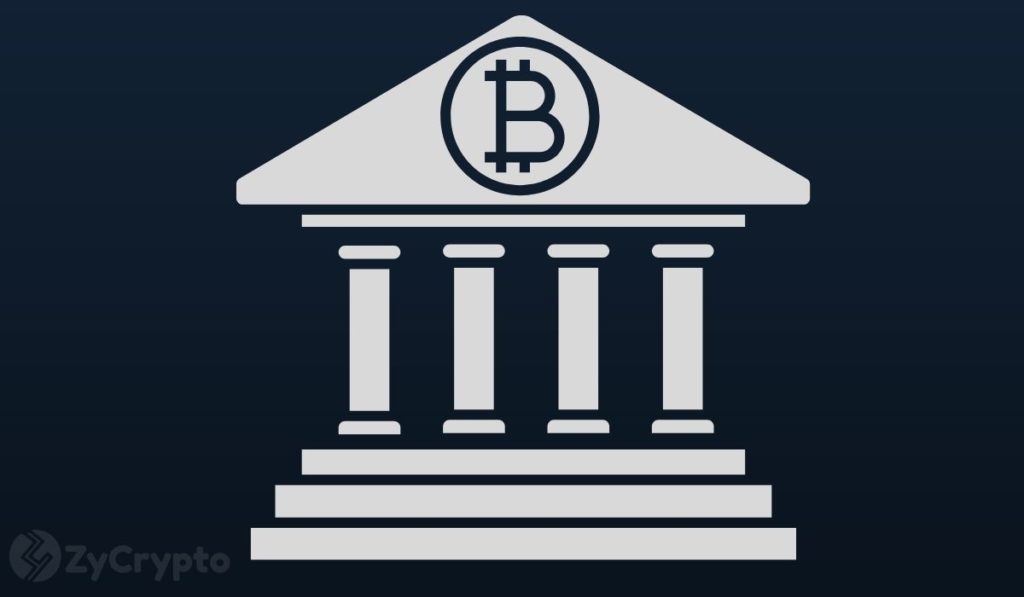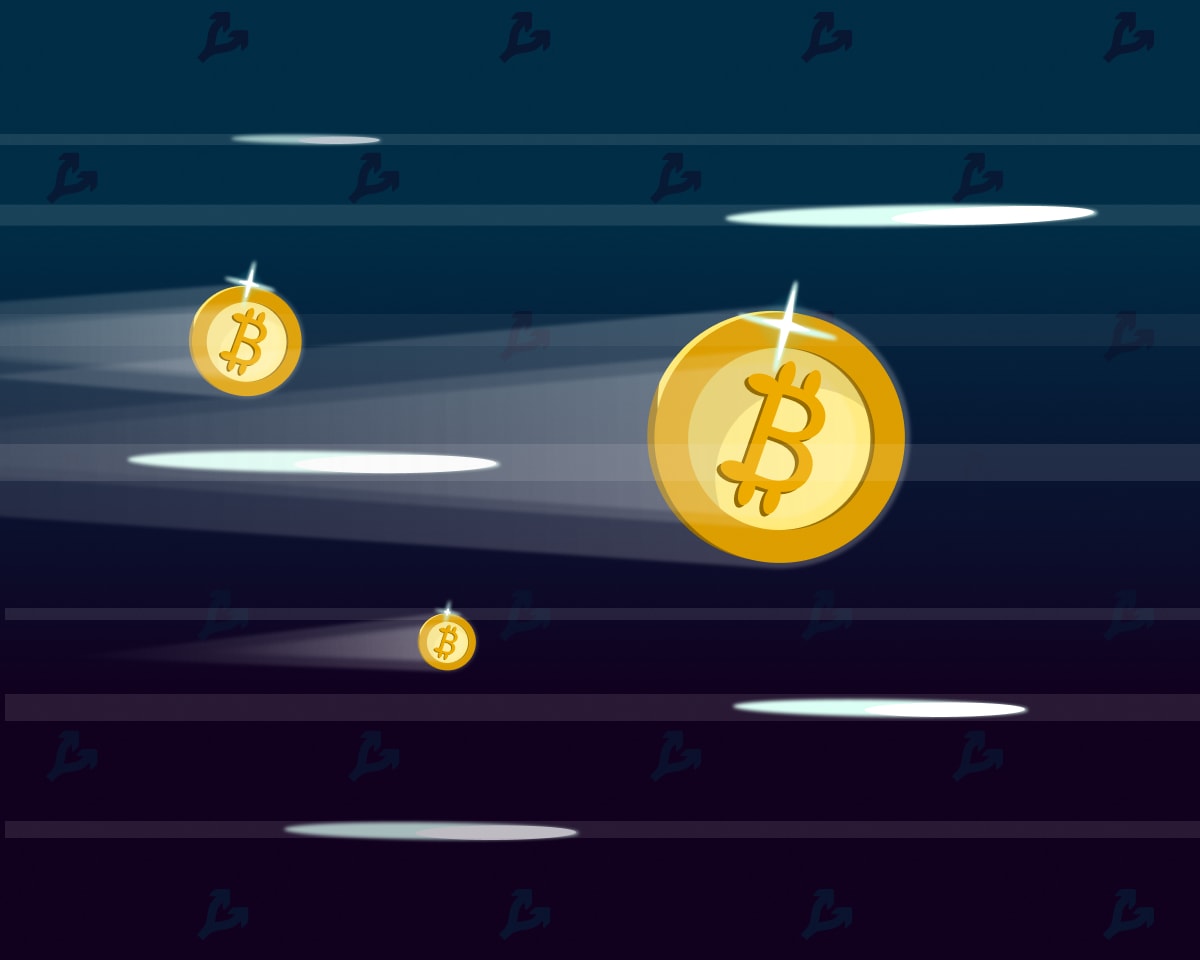
2021-12-24 17:00 |
Digital technology has an insatiable appetite for Analog Age social institutions, and Bitcoin will provide an exit for those inevitably seceding from the state.
“Software is Eating the World”
“Prudence, indeed, will dictate that Governments long established should not be changed for light and transient causes; and accordingly all experience hath shewn, that mankind are more disposed to suffer, while evils are sufferable, than to right themselves by abolishing the forms to which they are accustomed. But when a long train of abuses and usurpations, pursuing invariably the same Object, evinces a design to reduce them under absolute Despotism, it is their right, it is their duty, to throw off such Government, and to provide new Guards for their future security.”
–Thomas Jefferson, "Declaration Of Independence," 1776
Marc Andreessen’s most famous prophecy, that “software is eating the world” is continually proving its remarkable prescience. Not only is software transforming most business models, but it is also disrupting the largest enterprise in human history — the nation state. In each industry disrupted by digital innovation, previously impossible economic efficiencies have been unlocked, making the lives of consumers easier and cheaper. But what happens when digital innovation disrupts modernity’s dominant enterprise, the state?
To understand the implications of nation-state disruption, we must first understand the purpose of its business model.
In a most basic sense, nation states are compulsory territorial monopolies equipped with the power to impose taxation (property extractions) on taxpayers to fund the protection of taxpayer life, liberty and property. Read that definition again, slowly. Upon careful reading, it becomes immediately clear that the nation state is a self-contradictory enterprise: a property “protection service” that funds itself by violating the property of its “customers.”
Anyone that has studied basic economics will quickly realize that nation states, as monopolies, must be overcharging for these protection services, and that the quality of their services must be suboptimal. In other words, nation states are businesses incentivized to increase their own tax revenues while at the same time decreasing the quality of protection services they provide. No wonder virtually every taxpayer worldwide is dissatisfied with their government!
If nation-state tax rates were negotiable, and if citizens had the option to secede and self-organize new states, then the economic exchanges involved would be strictly voluntary. In such a scenario, the nation state would become a non-coercive organizational model, and tax payments would be optional, as “customers” dissatisfied with the quality of services rendered could secede and start their own states. As Ludwig von Mises wrote on these two essential conditions for non-coercive statism:
“...whenever the inhabitants of a particular territory, whether it be a single village, a whole district, or a series of adjacent districts, make it known, by a freely conducted plebiscite, that they no longer wish to remain united to the state to which they belong at the time, their wishes are to be respected and complied with. This is the only feasible and effective way of preventing revolutions and international wars.”
Peaceful secession is not something typically afforded by states historically. For instance, during the years leading up to The American War of Southern Independence (commonly called “the Civil War” in the U.S.), the South attempted many times to secede peacefully, but the Union refused to allow it, and applied political pressure until war broke out within the divided young nation. If Mises’ conditions are considered deeply, and taken to their ultimate conclusions, the right to secede peacefully effectively renders the state a “voluntary club” or membership organization, where taxes are essentially nothing more than “club dues” either paid voluntarily or not at all in the case of secession.
So, what does this all have to do with the disruptive potential of the Digital Age? Well, as Andreessen so brilliantly presaged: “Software is eating the world…”
…and that includes the state.
“[The State] forbids private murder, but itself organizes murder on a colossal scale. It punishes private theft, but itself lays unscrupulous hands on anything it wants, whether the property of citizen or of alien.”
–Albert Jay Nock, “On Doing The Right Thing,” 1928
“...the advent of the cybereconomy will bring competition on new terms to provision of sovereignty services. A proliferation of jurisdictions will mean proliferating experimentation in new ways of enforcing contracts and otherwise securing the safety of persons and property.”
–James Dale Davidson and Lord William Rees-Mogg, “The Sovereign Individual,” 1997
Digital technology has already radically transformed, or even completely disrupted, several industries. As of the time of this writing in late 2021, digitization’s impact on the integrity of social institutions is being widely felt as well. Among those at risk of being eaten by software stand even modernity’s largest and most dominant institutions: the nation state and (its primary apparatus of surreptitious property violation) the central bank. If digital technology is to transform these monolithic institutions, it will need to provide ways for citizens to peacefully secede and voluntarily self-organize within new structures of governance.
In 1849, Gustave de Molinari — a prominent French economist and teacher of Vilfredo Pareto — wrote a systemic and trenchant takedown of the traditional structure of governance under statism. With great theoretical rigor and apparent clairvoyance, Molinari argued that it is always in the best interest of consumers that all economic exchange remain absolutely free and voluntary, even in the industry monopolized by all states — security and violence. With astonishing accuracy, Molinari predicted the consequences of the monopolization of security and violence:
“If, on the contrary, the consumer is not free to buy security wherever he pleases, you forthwith see open up a large profession dedicated to arbitrariness and bad management. Justice becomes slow and costly, the police vexatious, individual liberty is no longer respected, the price of security is abusively inflated and inequitably apportioned, according to the power and influence of this or that class of consumers.”
–Gustave de Molinari (translated by J. Huston McCulloch), “The Production Of Security,” 1849
In the Digital Age, through the advent of peer-to-peer telecommunications technologies and, more recently, peer-to-peer private money in bitcoin, people today are radically empowered to live independent of the state.
Today, if a nation state increases taxes too aggressively, a citizen can move their capital into bitcoin, and “secede” by renouncing their citizenship and circumventing any potential “exit tax.” With encrypted messaging applications, nation states can no longer sequester or censor private communications. This makes self-organization of large groups much easier, more flexible and resistant to coercion. Taken in combination, these options to exit and self organize change the nature of relations between citizens and nation states to something that looks more like “voluntary clubs” instead of tax farms.
Digital technology makes possible the Misesian conditions for effective, non-coercive models of human organization within novel structures of governance. Since coercion cannot effectively sway digital interactions, individuals facing rising coercion by insolvent nation states will increasingly come to rely on digital rails to move their ideas and capital.
In these “international waters” of the Digital Age, overly taxed or otherwise coerced individuals will take refuge from nation-state predation. And since most nation states today are totally insolvent after decades of capital confiscation and misallocation, their future efforts to increase tax revenues will push citizens to shelter their capital by any means necessary. As the “ultimate offshore bank,” bitcoin is the obvious tool of choice in the face of rising monetary and fiscal policy aggressions.
Such “digital high seas” are a sudden transformation of the technological realities of the world, and represent an extreme disruption event for the business model of statism which generates revenues exclusively through coercion, compulsion and violence. It is extremely difficult to coerce an individual when their capital is held outside central-bank-controlled monetary networks. Compulsion becomes near impossible when individuals are able to break their physical identity from their digital identity and capital. Finally, the risk-to-reward ratio of violence is significantly increased when guns can be 3D printed and money can be kept in theft-proof custody schemas (like geographically-distributed Bitcoin multisig arrangements).
The result will likely be a flow of talent, experience and capital into those jurisdictions where people receive the highest-quality security services at the most fair price. In many ways, we can view the ongoing digitization of human relations as the disruption of coercion.
As alternative forums for human action, the coercion-resistant channels characterizing the nascent Digital Age will be increasingly preferred by individuals as opposed to living under the thumb of the state. By empowering individual choice, coercion is becoming a less profitable business strategy. For these reasons, software is eating the world, and that includes the state.
This is a guest post by Robert Breedlove. Opinions expressed are entirely their own and do not necessarily reflect those of BTC Inc or Bitcoin Magazine.
origin »Bitcoin price in Telegram @btc_price_every_hour
Bitcoin (BTC) íà Currencies.ru
|
|



























